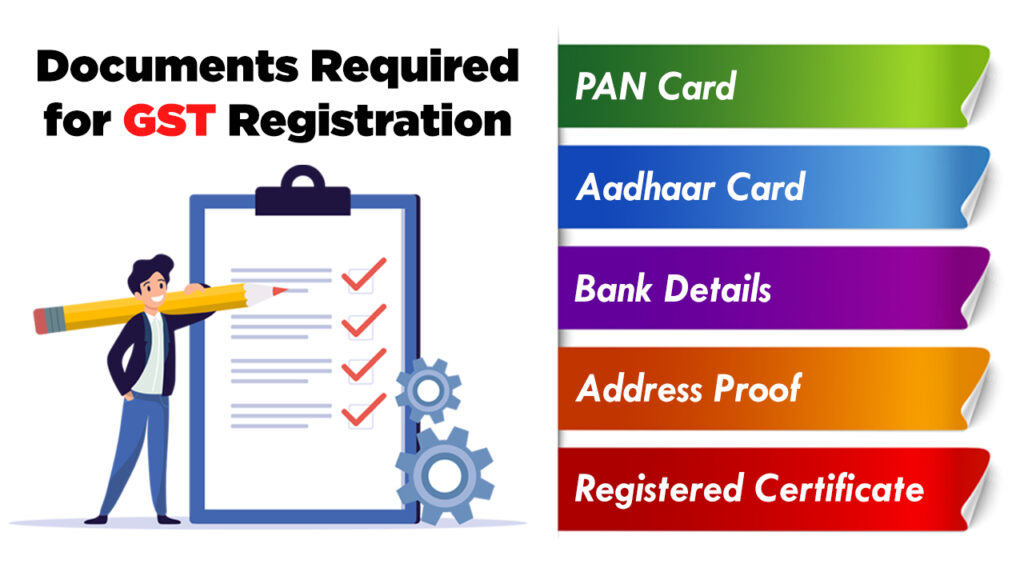Total List for Effective Singapore GST Registration
Total List for Effective Singapore GST Registration
Blog Article
The Ultimate Guide to Simplifying the GST Registration Refine and Requirements for Small Organization Owners

Understanding GST Basics
To realize the fundamentals of the Goods and Services Tax (GST) system, small company owners must first understand its underlying implications and concepts. GST is a value-added tax obligation imposed on the majority of goods and solutions for residential usage. It aims to simplify the taxes procedure by replacing numerous indirect tax obligations enforced by the state and main governments. Under the GST regime, companies are called for to gather and register tax on behalf of the federal government, making certain transparency and compliance.
Among the vital concepts of GST is input tax credit score, which permits services to assert credit score for taxes paid on their acquisitions. This device stops the plunging effect of taxes and advertises effectiveness in the tax obligation system. Additionally, GST is a destination-based tax obligation, suggesting that the tax obligation is levied at the factor of consumption as opposed to the point of beginning. This makes certain fair circulation of tax profits amongst states based on where the services or items are consumed. Recognizing these basic concepts is crucial for small company proprietors to navigate the intricacies of the GST system and make certain conformity with the legislation.
Eligibility Requirements for Enrollment
Having established a fundamental understanding of GST principles, small company proprietors should now meet details qualification standards to continue with the enrollment process. In India, entities took part in the supply of items or solutions with an annual aggregate turn over exceeding Rs. 40 lakhs (Rs. 10 lakhs for unique group states) are needed to register for GST. Furthermore, particular services such as those involved in inter-state supply of items, casual taxable individuals, and those required to pay tax under the reverse fee device need to sign up for GST irrespective of their turnover. Organizations that were registered under the previous tax obligation regime (BARREL, service tax obligation, etc) are also mandated to register under GST. Farming companies that just supply generate out of primary manufacturing are excluded from GST registration. It is essential for service proprietors to thoroughly assess their qualification based on these requirements to guarantee conformity with the legislation and avoid any type of penalties for non-compliance.
Papers Needed for GST Registration

Simplified Registration Process Actions
Complying with the collection and verification of the requisite records, the enrollment process for GST can be browsed via a collection of streamlined actions created to help with reliable compliance for small company proprietors. The very first step involves visiting the GST site and selecting the 'New Enrollment' option. Ultimately, the applicant should fill out Part A of the GST REG-01 form with details such my website as PAN, mobile number, and email address to obtain an OTP for confirmation. Once the OTP is received and gotten in, a Temporary Reference Number (TRN) is created for further proceedings. The following action my website needs filling in Component B of the type with required company information, posting supporting files, and finishing the verification procedure making use of DSC or EVC. Upon effective confirmation, an Application Referral Number (ARN) is provided, showing the conclusion of the GST registration procedure. By complying with these simplified actions, small company proprietors can successfully sign up for GST and ensure conformity with tax obligation regulations.
Tips for Ensuring Compliance
To preserve regulative adherence and operational integrity, persistent oversight and positive steps are critical in guaranteeing compliance with GST requirements for local business owners. Small service owners need to remain updated with GST regulations, submitting due dates, and any type of changes in tax rates to stay clear of fines and keep a great standing with tax obligation authorities. One essential pointer for compliance is to maintain comprehensive and precise documents of all deals, consisting of billings, costs, and invoices related to GST. On a regular basis reconciling monetary documents with GST returns can help in determining and remedying any kind of inconsistencies promptly. Additionally, carrying out regular interior audits or seeking specialist assistance can make sure that the business is complying with all GST policies appropriately. It is likewise critical for tiny company owners to buy GST-compliant accountancy software application that can streamline the tax declaring procedure and reduce mistakes. Last but not least, participating in GST understanding workshops or training programs can enhance understanding and conformity with GST policies, inevitably profiting business in the future.
Final Thought
In conclusion, local business owners have to recognize the fundamentals of GST, satisfy the qualification standards, gather required documents, and adhere to the streamlined registration process actions to make sure compliance. By simplifying the GST enrollment process and requirements, local business proprietors can prevent charges and run their organizations smoothly within the legal structure - Singapore GST Registration. It is important for small organization proprietors to stay informed and certified with GST guidelines to preserve an effective business operation
Tiny organization owners looking for GST registration must ensure blog they gather and send the needed files to complete the enrollment procedure effectively. The files required for GST registration normally consist of evidence of company enrollment or incorporation, FRYING PAN (Irreversible Account Number) card of the service entity, identity and address evidence of the promoters/partners/directors, photographs, address evidence of the place of service, financial institution account declarations or terminated cheques, and authorization forms. Going to GST awareness workshops or training programs can enhance understanding and conformity with GST regulations, eventually profiting the business in the lengthy run.
By simplifying the GST registration process and demands, tiny service owners can stay clear of penalties and operate their organizations efficiently within the legal framework. It is critical for small organization proprietors to remain compliant and informed with GST policies to maintain an effective business operation.
Report this page